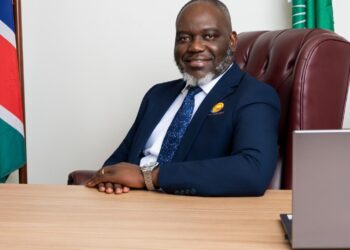
History would have it that to question a leader was frowned upon. It was seen as being disrespectful. In today’s workplace, there are about three very diverse generations, so diverse that expectations, perspectives and values may clash. It is possible that the entire paradigm of leadership may have been turned on its head in the last 10 to 15 years.
The new workforce does not expect inflexible and unmalleable leaders. A leader that is not understanding and vulnerable may find it extremely difficult to ‘gel’ well with the people in the current and future world of work.
Could vulnerability be the shunned secret to growth?
One of the most impactful traits of a great leader is to embody the growth mindset. Any authentic leader knows that the path of growth is riddled with error, loss and failure, among other things. To acknowledge that these obstacles are a reality of business growth is to channel the fact that vulnerability is not a weakness, but a part of life (and business).
A great leader is not necessarily the strongest, the smartest or the most talented individual. They are in fact the ones that confidently acknowledge the strength of others, seek the intellect of others and celebrate the talents of others.  They find people who are best at different things and get them all on the same team.
“Invite people into your life who don’t look like you, don’t think like you, don’t act like you, don’t come from where you come from, and you might find that they will challenge your assumptions and make you grow as a person,†said Mellody Hobson, President and CEO of Ariel Investments.
A leader’s role is to get the very best out of their team members. The level of productivity and the quality of the results of a team, especially one that is talented, is a reflection on the work environment that the leader either built or tolerated. Leaders that embrace vulnerability in the workplace, facilitate a safe working environment for people to speak up when mistakes are made and in turn an environment where people are not afraid to seek help or support.
An environment that embraces vulnerability does not foster unrealistic expectations of perfection. The environment empowers people to give their optimal best towards achieving the business’ mandate.
A leader builds through the greatness of others. To identify the greatness of others, one needs to be confident enough to embrace their own humanness. Humanness is the most vulnerable level that one can be. “The secret of being wrong isn’t to avoid being wrong! The secret is being willing to be wrong. The secret is realizing that wrong isn’t fatal. The only thing that makes people and organizations great is their willingness to not be great along the way. The desire to fail on the way to reaching a bigger goal is the untold secret of success.â€
Vulnerability is a framework for authenticity. It keeps things ‘real’, which in turn builds trust. Where there is trust, there is loyalty. Loyalty fosters quality professional relationships, which has a repeal effect on the overall brand image of the organisation.
As leaders, being vulnerable transforms us into the modern leader that people love to work with. Â
*Chaze Nalisa is the Founder of Pink Empowerment www.pinkempowerment.org











